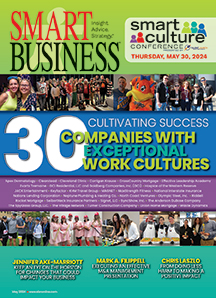Rosedale Technical College is one such partner, and President Dennis Wilke also is the chair of the Precision Manufacturing Institute, a trade school in Meadville, Pennsylvania.
“What I’m seeing is that there are pockets of companies doing well right now, but then there are pockets not doing so well. It’s not a one-size-fits-all approach,” Wilke says.
Rosedale started as an automotive school, but now teaches nine areas of study, including industrial technician, electrical technology and welding.
He says the most successful manufacturers have diversity and flexibility, so they aren’t backed into a corner. They work toward meeting a future need, not just satisfying a current one. That flexibility extends to their workforce, as well.
“One of the risks that companies have is they don’t have a workforce that is able to move with them and change with them,” he says. “So, besides recruiting students that have been through formalized training, giving them a wider toolbox and skill set, there’s also a risk of having an incumbent workforce that isn’t able to adapt as they adapt to the market.”
That’s why PMI and Rosedale have both increased their customized skills upgrading.
Wilke recommends partnering with education institutions not just to find talent and help shape training, but also for the visibility. Students gravitate to the companies they know.
“If you aren’t participating with your local educator, whatever type of college that is, you’re going to be toward the back of the line on trying to hire the talent,” he says.
Help them develop
LANXESS Corp., whose U.S. headquarters is in Pittsburgh, has also instituted workforce development programs.
Antonis Papadourakis, Ph.D., president, CEO and country speaker for the NAFTA region, says it starts with high school internships and rotational programs.
LANXESS works with universities, hiring graduates for sales and marketing, engineering and manufacturing, or finance and procurement. The new hires are moved into different departments, functions or even countries.
“It allows the people to develop, get better depth and get experience in the company. And eventually, when they go ahead and fill a role, they will be better equipped to be successful,” he says.
The company also has a successful program in Germany for apprentices, a country that has an aging workforce similar to the U.S. Papadourakis says that program is now in Pittsburgh and other U.S. states.
While a smaller company probably can’t afford to run a rotational program, he says business owners can still hire people right out of college, without much work experience.

